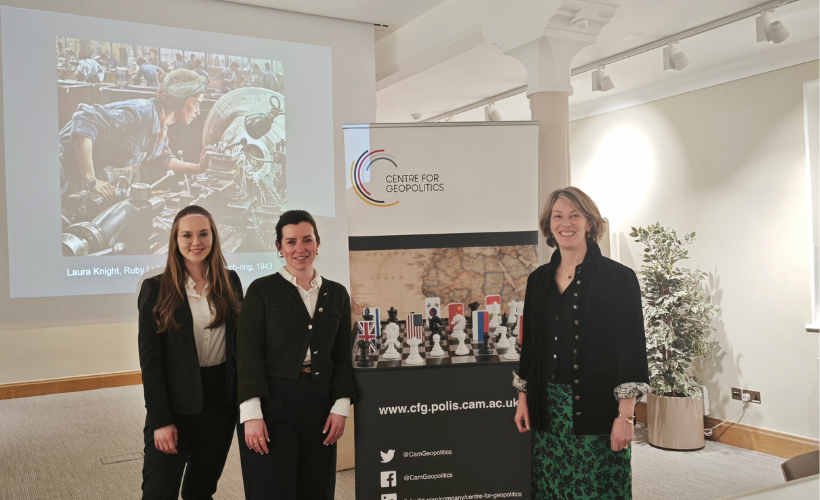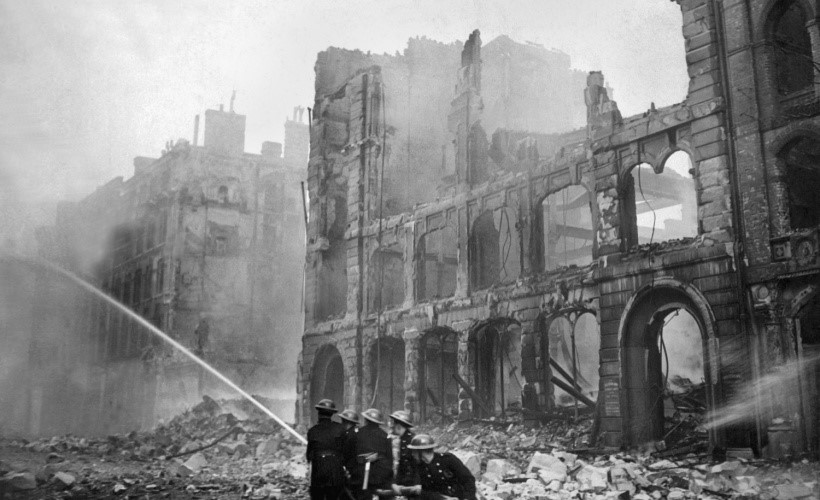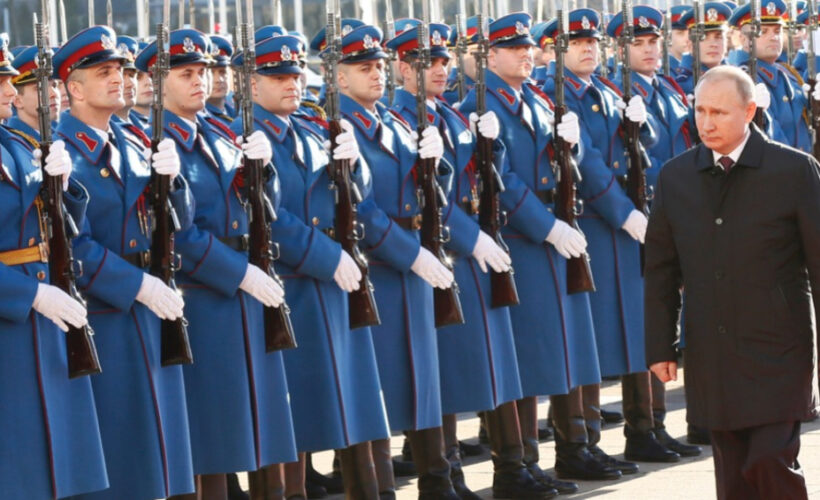By Rachel Dryden, former Ax:son Johnson Research Assistant in Applied History
On 25 June, the Centre for Geopolitics hosted a discussion on what we can learn from the geopolitical consequences of the Spanish ‘Flu. Panelists were Professor Margaret MacMillan (Professor of History at the University of Toronto and emeritus Professor of International History and the former Warden of St. Antony’s College at the University of Oxford), and Laura Spinney, (Science journalist and author. Her latest book is Pale Rider: The Spanish Flu of 1918 and How it Changed the World). The debate was chaired and moderated by Bridget Kendall (Master, Peterhouse College, Cambridge).
The discussion began by examining the parallels and differences between the Spanish ‘Flu epidemic and Covid-19. As with Covid-19, there were several waves of Spanish ‘Flu, with one in three people on earth thought to have been affected, and an estimated death toll of between 50 and 100 million people. A precise death toll is almost impossible to ascertain; there were no diagnostic tools, many other illnesses circulating at the same time, and a world war, all of which may have led to deaths being underestimated. The name “Spanish” ‘Flu is both misleading, and politically loaded. The “Spanish” ‘Flu only came to be called this because Spain’s neutrality meant its press was not subject to censorship, meaning the first reports stemmed from Spain.
The panellists also compared responses to the pandemics: Social distancing, facemasks and quarantine may have come to define the Covid-19 world, but they are in fact what we might term “old technology”—for example, the concept of quarantine goes back to 15th-century Venice. In 1918, infectious diseases were generally more prevalent, so people were perhaps more aware of the risks, and the patriotism instilled by the war also initially led people to link public health measures with doing their duty to their country. As with Covid-19, over time people lost faith, as they saw figures of authority not always obeying the rules and realised the treatments available were not effective. Discussion of how and when the Spanish Flu ended, and how the current Covid-19 pandemic might ‘end’ revealed that pandemics rarely completely end: people either die or develop an immune response.
The second half of the discussion focussed on the 1918 pandemic’s intersection with the First World War, and the cause-and-effect impact of both. As with Covid-19, the 1918 pandemic was truly global, partly because of the huge movements of people that took place during the war, and immediately afterwards. It was asked if there hadn’t been a world war, whether there would have been a global pandemic, or whether this underestimates how connected the world was then? Although we are even more connected globally today than in 1918, and we have better surveillance systems, we have more vulnerable populations kept alive by other medical interventions. While it is agreed the war did not directly cause the 1918 pandemic, the two events are connected. War, and the chaos that ensues from it, makes it more difficult to move food around. As a result, many people in 1918 were undernourished, and/or living in unsanitary conditions. In addition to the movement of soldiers, displaced people were on the move, healthcare was not what we would recognise today, with resources focussed on supporting those at the front. This convergence of conditions created the perfect storm and allowed the virus to spread. As with the Spanish ‘Flu, the Covid-19 pandemic has highlighted socio-economic inequality. Both then and now, this feeds resentment, and sparks protests for social change.
One of the ways in which the situation differs today is the way the pandemic is playing into international/national politics. A lack of reliable death figures from the Spanish ‘Flu may have made the pandemic less visible, and thus made it more difficult to attribute blame, although it did fuel tensions generally. Political ends are more central now than they were in 1918, for example the geopolitics of vaccines is a completely new aspect. Today, thanks to the wide-range of media sources available, we have a much better sense of what’s happening, and there was much more censorship in 1918.Until Covid-19 hit, most people would automatically associate the roaring 20s with the period immediately after the Spanish ‘Flu, rather than the impact of the ‘flu itself. It could be that the pandemic was overshadowed by the war, and the fact that there was so much death in so many other ways, but it is striking how little the 1918 pandemic appears in literature and art of the time. Although pandemics tend to follow wars and be much worse in terms of death tolls, society does not tend to remember, or commemorate them in the same way.
This led on to a discussion of how we will remember Covid-19, and whether we will also want to have our own roaring 20s. Covid-19 has shocked us in a way the 1918 pandemic didn’t, so this pandemic might buck the trend, as it’s also the first to post-date the internet age, and we have had so much more access to information from the start, which may allow us to form better memories. If it doesn’t, is there something in the nature of pandemics that makes them forgettable? In 1919, people were suffering from the double trauma of the war and the ‘flu, so perhaps they wanted to put both behind them. At the same time, it’s important to remember that more than 9 million people had died in the war, so people were generally more used to death, as well as illnesses that no longer kill as many people today, such as typhoid. The sudden death of young people wasn’t as shocking then as it is now. The panel agreed it would be good to revisit this topic in a year’s time, to see how the post-Covid-19 world had actually developed.







